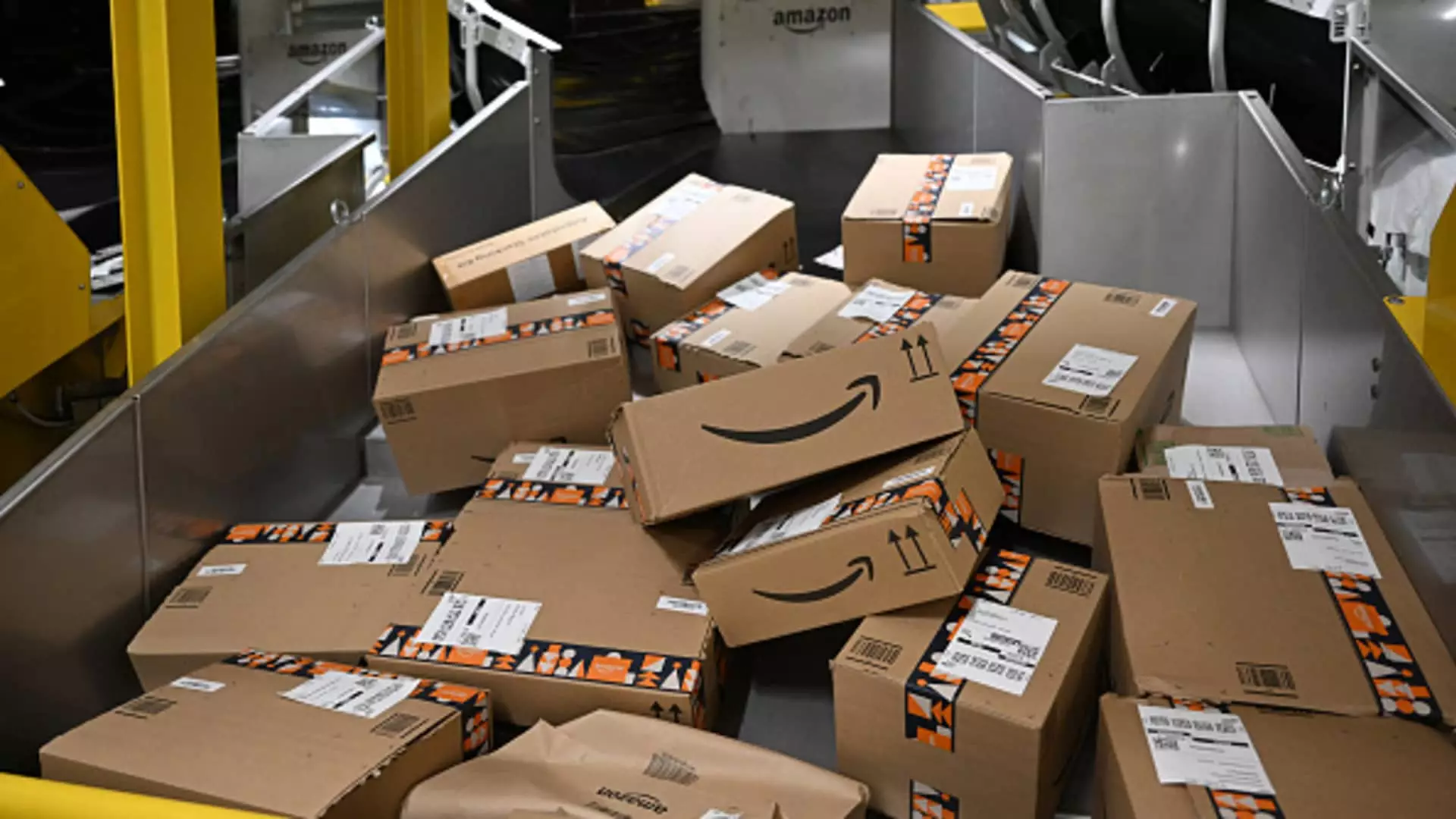As the e-commerce giant Amazon continues to expand its empire, concerns regarding its engagement with third-party sellers are intensifying. The German Federal Cartel Office (FCO) has voiced grave worries that Amazon’s pricing mechanisms may infringe upon competition laws. In a world where fair business practices should reign supreme, it’s alarming to observe a company with such vast influence engaging in tactics that could potentially stifle retail competition. By leveraging algorithms to control the pricing landscape, Amazon is jeopardizing not only the viability of its sellers but also the very essence of a competitive marketplace.
Opaque Marketplace Rules: A Recipe for Manipulation
At the heart of the FCO’s scrutiny lies Amazon’s non-transparent marketplace rules that appear to meddle with sellers’ autonomy. The FCO suggests that Amazon’s algorithms flag products with prices deemed “too high” or “non-competitive,” subsequently demoting these items in search results and relegating them to the shadows of obscurity. Such practices not only distort the perception of value for consumers but also exert undue pressure on sellers to conform to potentially unrealistic pricing paradigms. The assertion that consumer welfare is being prioritized rings hollow when the reality suggests a calculated strategy aimed at consolidating Amazon’s dominance over its platform.
This intricate web of algorithm-generated price caps raises significant ethical questions. Should a marketplace that prides itself on providing options to consumers be allowed to dictate the pricing strategy of its sellers? And how does this affect entrepreneurial freedom and the smaller players trying to compete in what is often characterized as a David versus Goliath scenario? The troubling implications leave one wondering if the digital marketplace is evolving into an arena where economic survival is dictated by algorithms rather than genuine consumer preferences.
The Impact on Sellers and Retail Diversity
The repercussions of Amazon’s pricing controls extend far beyond its third-party sellers. By constraining the pricing strategies of these vendors, Amazon inadvertently impacts the entire retail ecosystem. Other retailers might feel disincentivized to compete on price, leading to a stagnation of market innovation and a reduction in the diverse offerings that consumers rely upon. If sellers are coerced into pricing their products within artificially imposed limits, the vibrant marketplace we once celebrated risks becoming bland and predictable.
It is critical to consider the long-term effects of such market manipulation. A homogenized retail environment devoid of healthy competition would not only be detrimental to sellers but would also impoverish consumers’ shopping experiences. The very essence of choice is threatened when a single entity possesses the authority to determine what constitutes a competitive price. We must reflect on whether such an imbalance is truly in the public interest or merely a stride toward monopolistic behavior masked as consumer welfare.
Amazon’s Defense: A Misguided Perspective?
In response to these allegations, Amazon’s representatives vehemently assert that any alterations to their pricing strategies would ultimately harm both customers and sellers. They allege that removing their pricing controls could induce a scenario where “uncompetitive or even abusive pricing” flourishes, thereby misleading shoppers regarding the true value of products. With such arguments, Amazon appears to deflect attention from the apparent conflict of interest inherent in their dual role as a marketplace and a competitor.
This perspective fails to acknowledge the fundamental principle that consumer choice should be paramount. If Amazon genuinely believes in fostering a thriving marketplace, why should its sellers be restrained by rigid dictations? The company’s argument hinges on preserving a façade of consumer protection while simultaneously imposing strict controls on the very entities it purports to support.
Regulatory Scrutiny: A Step Toward Accountability
As regulatory bodies like the FCO and the U.S. Federal Trade Commission ramp up their investigations into Amazon’s business practices, it is clear that the path ahead could redefine the landscape of online commerce. These interventions serve as crucial reminders that no company, regardless of its size or influence, is immune to accountability. It remains imperative for regulators to dismantle structures that allow for monopolistic behavior, ensuring a level playing field for all market participants.
The battle between maintaining consumer welfare and promoting fair competition is a delicate tightrope that calls for vigilant oversight. As we navigate this complex digital age, the emphasis must align with fostering genuine competition rather than enabling corporate giants to exercise unchecked control over the marketplace. Only then can we aspire to create an e-commerce environment that truly serves the interests of both consumers and retailers alike.


Leave a Reply